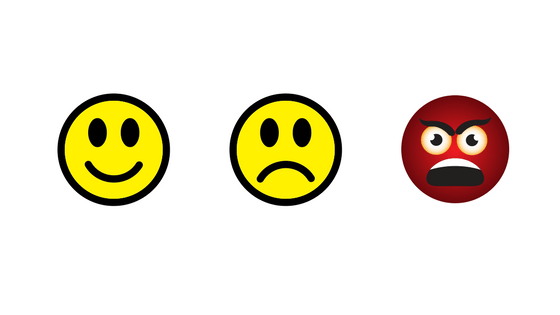Because we’re all nice people here (right?) we want to see the people around us being happy. We want to see smiling faces, hear the laughter of shared jokes and know that the people we spend time with are content.
It’s also helpful that happy staff are more productive. It’s not that we’re monsters who only care about deadlines and deliverables, it’s just that the positive side effects of happiness are a gift we’d be foolish to turn down. Things like:
- Smiling lowers stress levels and ups motivation
- Increased ability to deal with setbacks
- Happy staff are more likely to help each other out
- They’re also more likely to bond, and as we know team spirit is vital to effective remote working
(Though, if you are having trouble with thouse dealines and deliverables, then perhaps we can help by getting you an extra pair of hands on deck? Contact us and we’ll set you up.)
Now, if you work in the same office as you team, it’s likely that you can tell quite easily who is happy, who’s having a bad day and who is likely to stress quit by the end of the week. There’s an atmosphere, as you walk through the cubicles, whether that’s slowing down to enjoy the jokes being shared, or making sure you don’t disturb the heads down hard work – or you feel the hairs on the back of your neck rising like a storm is about to hit.
With a remote team, it can be harder to judge the mood. It’s also more critical: remote workers are often solitary. If no one sees how grouchy they are, how can they send them a kitten meme to lift their spirits?
So, as remote team managers, we need the right tools to measure how our staff are feeling. Here are some suggestions:
The Agile Way
If you’ve read our free eBook, you’ll know that we are big fans of the Agile Remote Development Methodology being used in tandem with remote working. We think that the focus on communication and sharing progress really help keep a remote team ticking over. Agile also has a concept relating to measuring team mood, the niko-niko calendar.
Initially designed for office-based teams, a chart would be put on the wall; every day, staff would be asked to put either a smiley, neutral or sad face. It gave a quick and simple overview of how happy the team was feeling.
The trouble is that just measuring happiness isn’t a lot of help. People’s overall mood is affected by a lot of things. Did they argue with their wife (or meet the man of their dreams) the night before? Was their commute difficult? Is Bob in the next cubicle cracking his knuckles all the time? Did someone use their special mug?
It can also lead to a lot of neutral results. If staff isn’t prepared to commit themselves to the high or low, you get middle ground, so it can be useful to expand that center section. Some firms have used a weather analogy; was it stormy, rainy, cloudy, occasional sun or a scorcher? You can always create a scale that is unique to your team to make it a more involving and fun experience.
But ultimately, just having a subjective measure of happiness isn’t that useful. If you want to really know what is going on with your team, then you’ll need to ask some open-ended questions, too. So you might send round a daily email asking things like:
- How happy were you today, on a scale from Eeyore to Tigger?
- What are you happy about at work, right now?
- What is challenging you most at work, right now?
- What would make you happier in your work?
This framework will give you a little more information to work on. It will help you keep tabs on any causes of frustration that aren’t coming up in the daily stand-up. There are tools, like TeamMood which help you automate the niko-niko process for remote workers (it would also work in offices, too) that also give your staff the chance to submit your anonymous feedback. That’s an excellent opportunity to give them to let them voice issues they have with the task, the team or even your management without feeling like they’re risking their career.
There is an argument that it’s better to measure morale, rather than happiness. Morale is what you want to improve, rather than happiness. Your team’s morale is linked to the tasks that they are doing. It’s isn’t as subjective and isn’t so easily influenced by other factors.
What’s morale then?
The dictionary tells us that morale is the confidence, enthusiasm, and discipline of a person or group. High morale means a highly functioning team. So how can we measure morale?
To get a rating on morale, ask for ratings on ideas like:
- I enjoy being part of this team
- The work that I do is meaningful
- I am proud to be part of this team
- The work that I do is challenging
- I feel comfortable asking for support
While you might not want to ask those same questions every day, you could still combine the mood monitoring with a weekly or semi-regular polling with regards to morale to get an idea for how feelings are changing over the course of a project.
If you do send out these sorts of questionnaires, make sure that you touch base with anyone who doesn’t respond. It may be that they’ve simply forgotten, but it could be that you have someone who is feeling increasingly isolated and needs a little more TLC.
A simple way to collect reliable information from a distributed team is the cloud-based (free!) solution, TeamMetrics but you could also use something like SurveyMonkey to give you more chance to customize your question.
Great Morale, Great Manager?
As a team leader, you’ll have plenty of ways of measuring your own success. Chances are that you have KPIs that you need to look out for. You’ll know if you’re delivering on time, and you may have had feedback from clients, or from higher up the food chain to tell you that you’re doing well.
And having a happy team? That’s certainly a good indicator that you’re doing something right. But don’t rest on your laurels. Make sure that your team has opportunities for advancement and training. Keep working at that sense of belonging, to keep your team together and make sure that you support your team both internally and their place within the company. If you can manage all that? Then you’ve reached the pinnacle of remote team management.
Recruit Happy
And as with everything, the happiness and morale of your team are dependent on the people that you hire. Not everyone is cut out to work remotely, but at DistantJob we spend our time finding the best global development talent and connecting them with companies like yours. If you are looking to expand your staff, then get in touch. We’d love to help you find yet another Tigger for your team.




